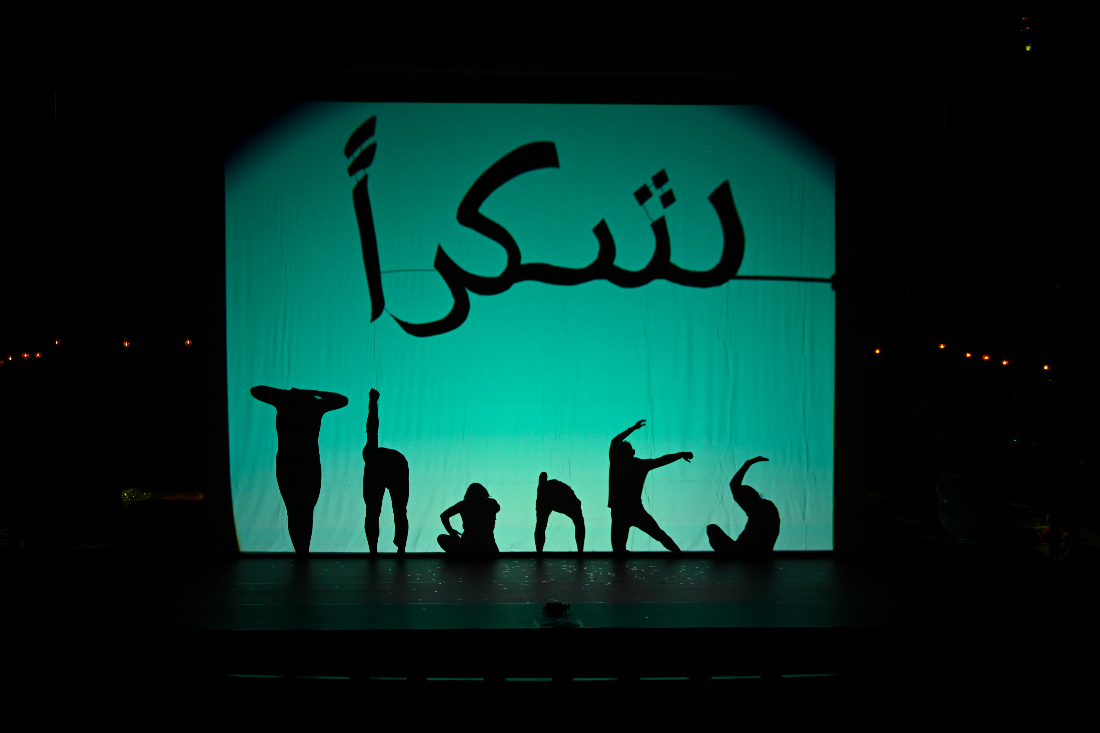DHAHRAN: The King Abdulaziz Center for World Culture (Ithra) theater was lit up last night with dancers moonlighting as animals, their human hands morphing into dogs, using nothing but strategically synched fingers and legs swirling behind ultra-fine screens of light — and the power of imagination.
For three consecutive nights until Aug. 27, lighting specialists used shadows to create silhouettes laid against bright neon walls in a whirlwind performance.
Combining a mixture of live dance and the magic of illusion, the nine human performers used their bodies — and a few props — to bring the diorama to life.
The award-winning dance piece by Pilobolus, an American modern dance company that started in the 1970s, has been on tour since 2009, and this was its first trip to Ithra.
Shadowland tells a coming-of-age story of a young woman with blue hair who creates a world within her world — right in her bed. In the same way, Ithra visitors went on a 75-minute journey without ever leaving their seats.

With limited dialogue, you can see that the protagonist seems to be wrestling with some inner demons that fully emerge while she slips into slumber in her bedroom after a brief tense moment with what is presumed to be her parents.
While asleep, she goes on an epic adventure, including interactions with nasty plants and journeys through various locations, meeting different creatures on her dreamland tour.
Music is a central part of the storytelling process — much of the beginning is non-verbal, so audience members could create a dialogue in whichever tongue was natural for them. This decades-long, award-winning show has been a collaboration between Pilobolus and the writer of the ever-popular “Spongebob Squarepants” cartoon, Steven Banks, as well as musician David Poe, whose orchestral and electronic music added to the ambience.
Shadowland premiered to rave reviews 13 years ago in the US and has been on tour ever since, gracing stages in every continent — and now in Saudi Arabia. At the end of the performance, the dancers created a silhouette with their bodies spelling out the words “Ithra” and “thank you” in Arabic.

















